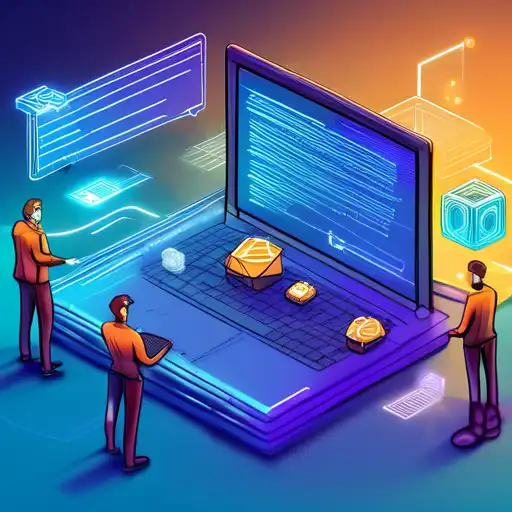Introduction to Smart Contracts
Smart contracts represent a pivotal innovation in blockchain technology, automating agreements without the need for intermediaries. These digital contracts execute transactions automatically when predetermined conditions are met, ensuring trust and efficiency in decentralized environments.
How Smart Contracts Work
At their core, smart contracts are self-executing contracts with the terms of the agreement directly written into code. They run on blockchain networks, which means they are distributed and immutable. This ensures that once a contract is deployed, it cannot be altered, providing a high level of security and transparency.
Benefits of Smart Contracts
- Efficiency: Automating processes reduces the time and cost associated with traditional contract execution.
- Security: The decentralized nature of blockchain makes smart contracts resistant to fraud and hacking.
- Trust: With no need for intermediaries, parties can transact directly, reducing the potential for disputes.
Applications of Smart Contracts
Smart contracts have a wide range of applications, from financial services to supply chain management. In the realm of cryptocurrency, they facilitate automatic payments and token exchanges. Beyond finance, they can automate legal processes, real estate transactions, and even voting systems.
Challenges and Considerations
Despite their advantages, smart contracts are not without challenges. The immutability of blockchain means that errors in the contract code cannot be easily corrected. Additionally, the legal status of smart contracts varies by jurisdiction, posing potential regulatory hurdles.
Future of Smart Contracts
As blockchain technology evolves, the potential for smart contracts continues to expand. Innovations in blockchain technology are making smart contracts more accessible and versatile, paving the way for their integration into a broader range of industries and applications.
Understanding smart contracts is essential for anyone looking to leverage blockchain technology. By automating agreements and transactions, smart contracts offer a glimpse into a future where business and governance are more efficient, transparent, and decentralized.
